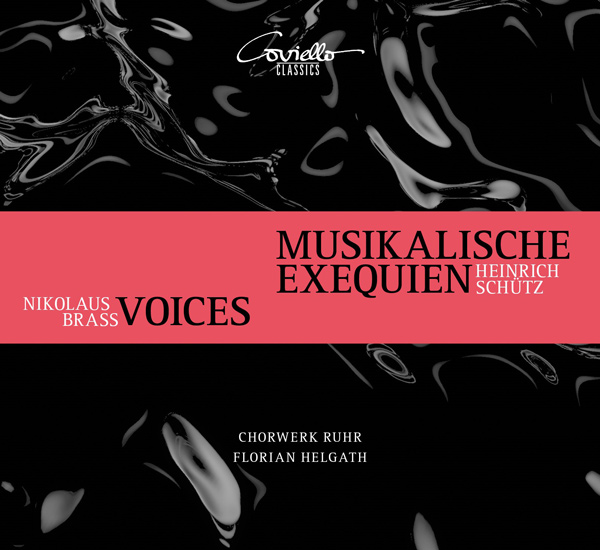
Heinrich Schütz: Musikalische Exequien
Chorwerk Ruhr
Edition: Coviello Classics
Booklet: de / en
Media: CD / HD Download
COV 92210
The encounter of different epochs is often the decisive moment of tension in music programmes. Chorwerk Ruhr chooses a particularly original path in its latest prank: a central work by Heinrich Schütz is juxtaposed with what Nikolaus Brass, born in 1949, develops from his encounter with the work of arguably the greatest German vocal composer of the early Baroque. Schütz’s Musikalische Exequien, a three-part funeral music with German text from 1637, vividly depicts suffering and death, but in accordance with Christian doctrine also gives great space to the certainty of salvation. Nikolaus Brass, as he says, conscious of this certainty, interrogates the music of his revered colleague and responds partly with almost verbatim quotations, partly with strongly contrasting passages from his works Voices 1 and Voices 2. In this new production, these two frame the Exequien as a large central work, again framed by two Schütz mottoes, so that a symmetrical overall arrangement is formed.
HEINRICH SCHÜTZ (1585 – 1672) · MUSIKALISCHE EXEQUIEN
NIKOLAUS BRASS (1949*) · VOICES
| HEINRICH SCHÜTZ | ||
| 1. | Herr, nun lässest du deinen Diener in Frieden fahren, SWV 432 | 3:12 |
| NIKOLAUS BRASS | ||
| 2. | Earth Diver: Voices I | 7:11 |
| HEINRICH SCHÜTZ Musikalische Exequien, op. 7 |
|||
| Teil 1 | Konzert in Form einer deutschen Begräbnis-Missa, SWV 279 | ||
| 3. | Nacket bin ich von Mutterleibe kommen | 3:39 | |
| 4. | Also hat Gott die Welt geliebt | 19:40 | |
| 5. | Teil II | Herr, wenn ich nur dich habe, SWV 280 | 3:04 |
| 6. | Teil III | Herr, nun lässest du deinen Diener in Frieden fahren, SWV 281 | 4:18 |
| NIKOLAUS BRASS | ||
| 7. | Earth Diver: Voices II | 12:18 |
| HEINRICH SCHÜTZ | ||
| 8. | Selig sind die Toten, SWV 391 | 3:17 |
| Total time: | 56:46 | |
